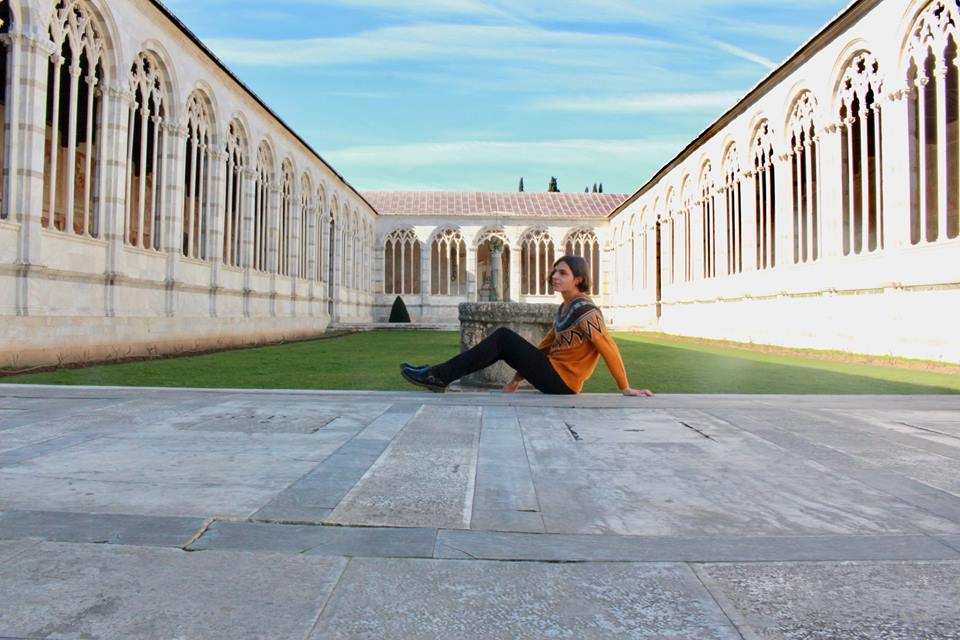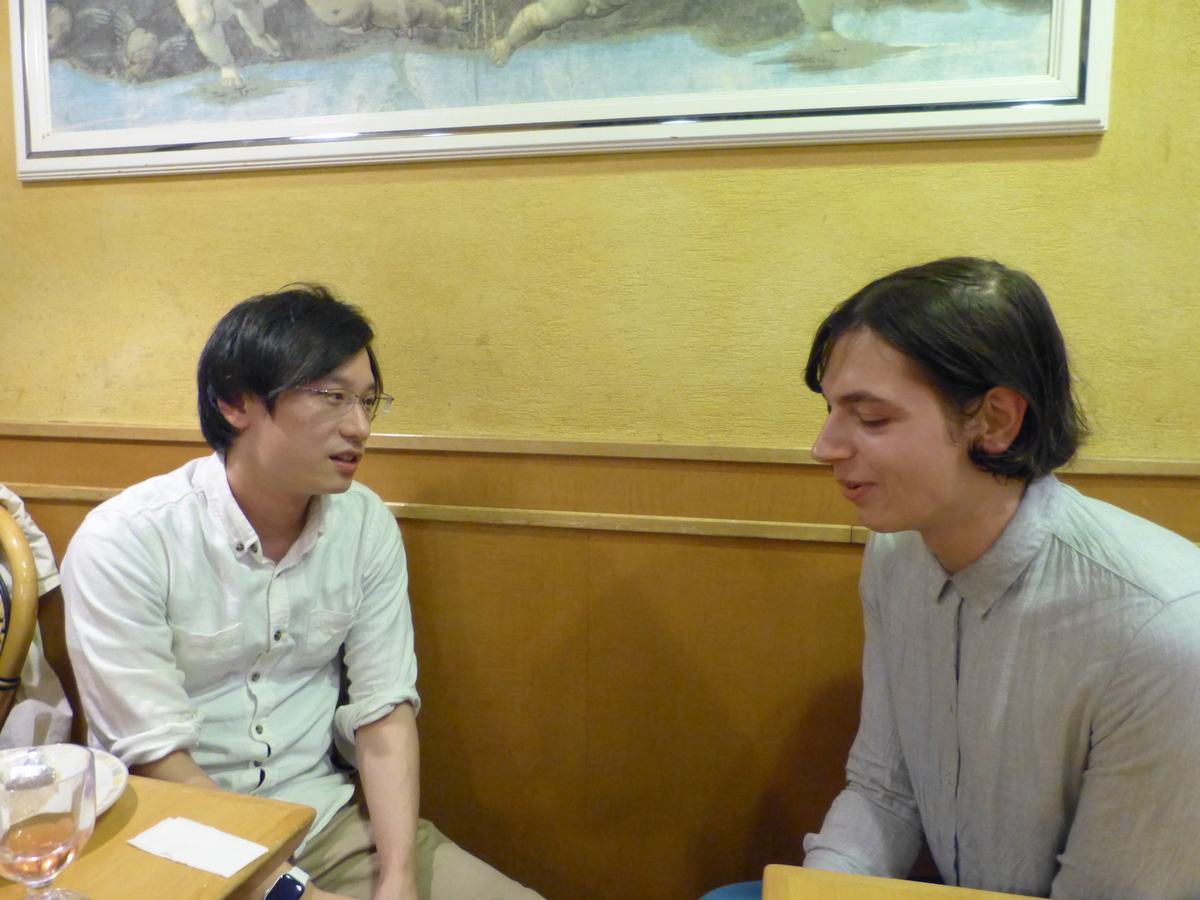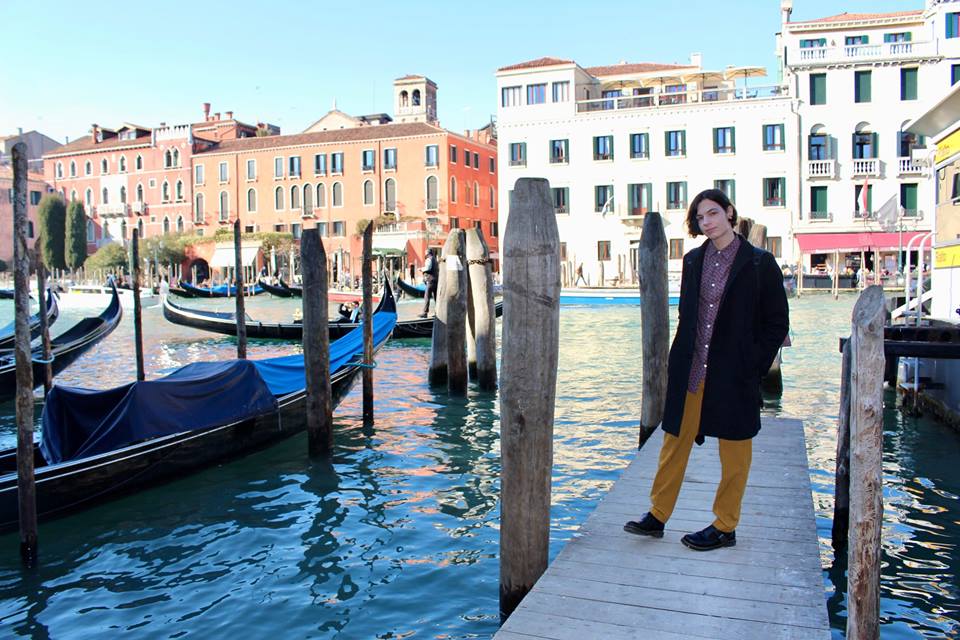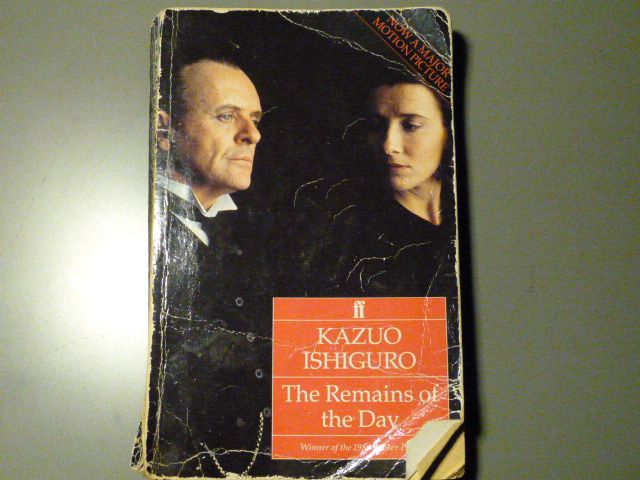
Written by Vosot Ikeida and Francesco Pantò
... Continued from Round 1
The Difference of the Concept “Shame”
Vosot You saw both Italian hikikomori and Japanese hikikomori, but have found any difference in the way they are?
Fran I think a Japanese hikikomori usually doesn’t ask for help easily. I suppose that is because of the difference of the way of communication between Japan and Italy.
In the Japanese culture, you have the strong feeling of “haji (shame)” and “meiwaku (trouble or annoyance)”. In Italy, we have the individualism at the base, so I have the feeling that the hurdles to ask for help to the others are a little lower than in Japan.
Vosot I imagine that Sicilian people also has a strong concept of “shame” as the reversed side of “honor”, don’t you? But still, do you think these are different concepts, Japanese shame and Sicilian shame?
Fran They are different. A Japanese tends to think it is a shame if you disturb somebody else. A Sicilian doesn't think so. Even if a Sicilian disturbs somebody else, as far as he can keep his honor, it would not be regarded to be a shame. A Sicilian person would not have a big fear to disturb the social order for personal desire, compared with a Japanese.
Triangle of Society, Children and Parents
Vosot I see. In other terms, the order in society is not so highly respected in Sicily, Italy, as in Japan. So a Sicilian would be able to ask for help to the others more easily than a Japanese, correct?
As for the cause to become a hikikomori, I think a mother-child relationship takes a great role in Japan, as myself I related to that . How would you compare the mother-child relationship in Italy and Japan?
Fran I think that is similar. An Italian mother is usually excessive meddling, even if there are some exceptions .
Vosot Have you ever made researches about hikikomori in other European countries such as Spain or France?
Fran Not yet, but it would be lovely. I know there are many hikikomori in Spain…
Vosot France has many too, but I feel like the average mother-child relationship in France is a bit different from Italy. However, when I think of the relationships among the child, the parent, and the society, Italy and France are so similar, and I am pretty sure that is similar everywhere in Europe. That means, when a hikikomori child opposes to the society, in Japan the parent takes the side of the society, and in Europe the parent takes the side of the child.
More precisely, the “society” in the Japanese context is not the exactly the society which European people would have in mind. It would rather consist of one’s close people, such as neighbors or relatives in the town, or the people that they should follow in order to conform. So, a Japanese often call it with a honorific title “sama”, such like “seken-sama”, which means “Lord Society”.
Fran In Japan and Europe, the relationship between an individual and the society are so different.
In Europe, an individual is a member of the society and the individual and the society exist on the same level. But in Japan, it seems that the society exists as something above the individual. That is also why a word like "seken-sama" (世間様 / Lord Society) is used.
Vosot I agree.

The Effectiveness of a Psychiatric Approach using Fictional Narratives
Vosot You are now enrolled in the doctoral course at the University of Tsukuba, and from April 2019, you are going to start your clinical internship in a big hospital in Tokyo as the first Italian psychiatrist.
At present, November 2018, you are conducting a questionnaire survey for us, the Japanese hikikomoris. Can you explain a little about this?
Fran Yes. This is a questionnaire to investigate "How a Hikikomori thinks of fictional narratives”. Basically, I am studying the psychotherapeutic effectiveness of fiction (like movies, anime, manga or novels). I came up with this idea when I felt isolation and loneliness in Sicily while I was a child, but I was saved and supported by fantastic stories of Japanese animation. I wonder how many other people experience this kind of things. That is why I am conducting a questionnaire survey to the Japanese hikikomoris, to try to understand their relationship with fictional narratives.
I have got the hypothesis that those kinds of story that Japanese tell in the anime works, could function as a tool to heal people universally, and I think this is not noticed by Japanese themselves yet.
One person may find the role model in a character drawn or described in a story. Actually watching and reading fictional narratives are considered to be a simple hobby, but if we make a point with the effectiveness of fictional narratives on mental health, we may be able to establish a new approach to get people motivated in their real life after they received some inspiration from the characters in story.

Whe Do We Read Stories?
Vosot The power of stories has long been discussed in various ways. It will also be related to why people want to read a story.
I have been a hikikomori intermittently since the 1980s, but I am a non-otaku type of hikikomori, so I do not know anything about the Japanese animation that you mentioned.
However, I have experienced to be absorbed in many stories as well. There are times I was saved and supported by stories. But they were not Japanese anime works. In my case, Kazuo Ishiguro's novel titled "The Remains Of the Day" greatly supported me.
So, I think that it is not only anime that has psychotherapeutic effectiveness. It must be concerned with a story in general. A story would have more universal power to heal people, in the West or East, past or present.

Fran Yes, it not limited to the Japanese anime or manga. It is the universal power of stories and I think is related to the fictional way to tell a story. I agree with you.
It is common for people to search for a mean to simulate experiences that they can not have in their real life. Besides that, I think sometimes you can keep your motivation if you read a story. Because even if things can not be done in your reality at present, you can hold a hope that you will be able to do it in the future by reading the story. The power of a story could be an opportunity to change yourself.
As I think we can expect therapeutic potentials from stories, I would like to use this tool in my clinical setting in the future. I will let the patients watch or read the story and then make a dialogue with them. By the dialogue with a mental health professional, the impression given by the story will hopefully not be forgotten immediately but be settled in their memory more profoundly. If symptoms like depression get better in this way, it could be recognized as a clinically effective method in the future. It will be a long way to go for sure, but that is exactly the reason I want to pursue.
...To the Japanese Version of this article
...To the Italian Version of this article
